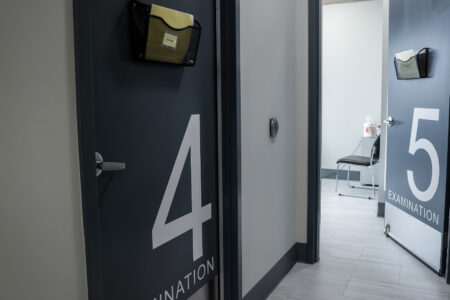
Health care systems around the world talk about the importance of being patient centred. This approach is not just “motherhood and apple pie.” It is built on a series of important debates and developments that can be seen in the UK Health Foundation’s person-centred care timeline. Central to these debates is the idea of “patient engagement” — the process of involving patients in decisions about their own care and the general public in wider discussions about health care services and systems.
But how well do policies on patient-centred care and patient engagement translate into practice? Some commentators believe there is room for improvement.
Umair Majid, for example, sees a need to reshape the culture of the health care system in a way that invigorates patient engagement initiatives. For him, there is value in patient engagement committees, conferences, frameworks and toolkits. But he sees a need to “go beyond establishing structures to the more important level of fostering a health care culture that places patients and family at its centre.”
Jennifer Johannesen has an interest in patient engagement in research. Her question is not so much “how do we do it better?” as “why do we do it at all?” She wonders whether patient engagement is sometimes more about “virtue signalling“ than a desire for partnership and learning.
My own focus (or bugbear, if you like) is evidence. Here in the UK, I have the privilege of being part of a small but committed team that is intent on getting our National Health Service (NHS) to move its patient experience/engagement work onto an evidence-based footing. Our rationale is simple: The NHS wants to be patient centred. That means it has to understand patient experience. And that means it has to work from the evidence.
The UK is not short of evidence on patient experience. A mass of data is generated every year — from national patient surveys, local Healthwatch reports, health charities, think tanks, academic research and more. It all helps to shed light on what works (and what doesn’t) from the patient’s point of view.
Topics include access to medical records, transport to services, discharge from hospital, access to primary care appointments and so on. The data help to drive quality improvement and guide professionals toward the holy grail of patient-centred care. Or at least it could, if it were properly organized and used. And herein lies a difficulty.
The UK’s patient experience evidence has not been well organized. It is published across hundreds of different organizational websites, all of which are designed and structured differently, and some of which are not well maintained. Even dedicated patient engagement professionals can find it hard to keep up with the flow of data and remember where everything is held.
And that leads to a further difficulty: if you can’t find the evidence, you can’t act on it.
This is in stark contrast to the way that the medical professions organize their data. On the clinical side, the NHS takes its evidence very seriously. Clinicians have access to huge databases of medical research. Their training and professional development are informed by research, and their practice is evidence based.
The founders of the Patient Experience Library thought that patient experience work should be organized in the same way. We hoped that an NHS with a stated commitment to being patient centred would want to take patient experience evidence as seriously as it takes clinical evidence. But when we went to various NHS bodies to propose developing a national database of patient experience evidence, we were told that it would be too difficult or too expensive.
Initially, we were surprised. After all, if clinical research databases are feasible, why not a patient experience research database? Then we were annoyed. The NHS spends millions each year on patient surveys and patient engagement work. Why not spend a few thousand to get the resulting evidence properly organized? Finally, we were determined: if the NHS wouldn’t help us build a patient experience evidence base, we would just go ahead and do it anyway.
The Patient Experience Library has been up and running for three years. We have so far collated and catalogued over 50,000 documents relating to patient experience and engagement. Thousands of patients and health professionals read our research-based blogs and quarterly Patient Experience magazine. NHS England, Health Education England and the National Institute for Health and Care Excellence (NICE) are among the subscribers to the library. Our annual Patient Experience in England reports show how a well-organized evidence base can illuminate policy and practice.
Based on our experience, our challenge to health care systems worldwide is this:
- You can’t say you’re patient centred if you’re not working from the evidence.
- If your clinical work is evidence based, but your patient engagement work is not, your whole provision and perspective are out of balance.
- Being evidence based means drawing on the widest possible body of knowledge on patient experience and engagement — not just on your own local surveys and advisory groups.
We would encourage patient engagement professionals, patient advocates and patient groups to put these challenges to their own health care systems, and to lobby hard for a coherent, wide-ranging evidence-based approach (not just local surveys and fragmented reporting across multiple websites). If clinicians can have comprehensive evidence bases to work from, so can patient engagement workers.
And don’t let anyone tell you that developing such an evidence base is too difficult or too expensive. If we can do it, so can you.
Photo: Shutterstock, by meunierd.
Do you have something to say about the article you just read? Be part of the Policy Options discussion, and send in your own submission. Here is a link on how to do it. | Souhaitez-vous réagir à cet article ? Joignez-vous aux débats d’Options politiques et soumettez-nous votre texte en suivant ces directives.









